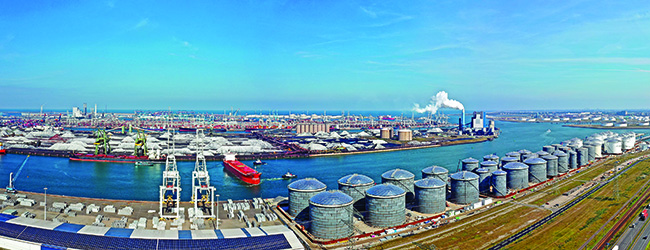In 2017 the environmental organisation Mobilisation for the Environment (MOB) went to the European Court of Justice to challenge the Dutch system for protecting Natura 2000 areas from nitrogen pollution. In May 2019, the court ruled in their favour and since then the Dutch government has been struggling to find a policy solution that brings nitrogen emissions down to acceptable levels. In July 2021, a new law was passed with the aim of replacing the old permit processes in the short term.
Now MOB has acted again. In a case against Porthos, a planned CCS project in Rotterdam, they have disputed parts of the new law that exempt large construction projects from controls on nitrogen-based pollutants. On November 2, the Netherlands’ top administrative court ruled that the exemption was not in line with EU nature protection law.
This does not stop the Porthos’ project, but it will likely be delayed up to half a year, a spokesperson told ENDS Europe, the time they estimate is needed for a new permit process.
The intention of the project is to capture the CO₂ emissions of companies in the port of Rotterdam, such as hydrogen producers Air Liquide and Air Products and oil companies such as ExxonMobil and Shell, as well as other major emitters and chemical companies in the Netherlands, and to transport them via an undersea pipeline to an old gas platform twenty kilometres offshore. The CO₂ will then be pumped into an empty gas field and stored at a depth of three to four kilometres. Before the ruling, Porthos aimed to be operational in 2024/2025.
The planned injection of 2.5 million tonnes of CO₂ a year until the site reaches capacity after 15 years was equivalent to just 1.5% of the Netherlands’ annual emissions, MOB observed. You could “offset that with 25% fewer cows”, MOB president Johan Vollenbroek said.
In addition to delaying the Porthos project, the ruling will have consequences for all sorts of construction projects in the country. Since the general exemption has now been declared invalid, all construction projects must calculate how much nitrogen is emitted both during and after construction.
According to the Council of State, the measures that the Dutch government wants to take to reduce nitrogen emissions ¬– from buying out farmers to using shore power instead of diesel generators for shipping – are too uncertain and have not yet been implemented. That is why they should not be regarded as compensation for the nitrogen released during construction projects.
Kajsa Pira
Source: ENDS daily, 3 November 2022
Change Inc, 2 November 2022 https://www.change.inc/infra/uitspraak-raad-van-state-porthos-project-39131































